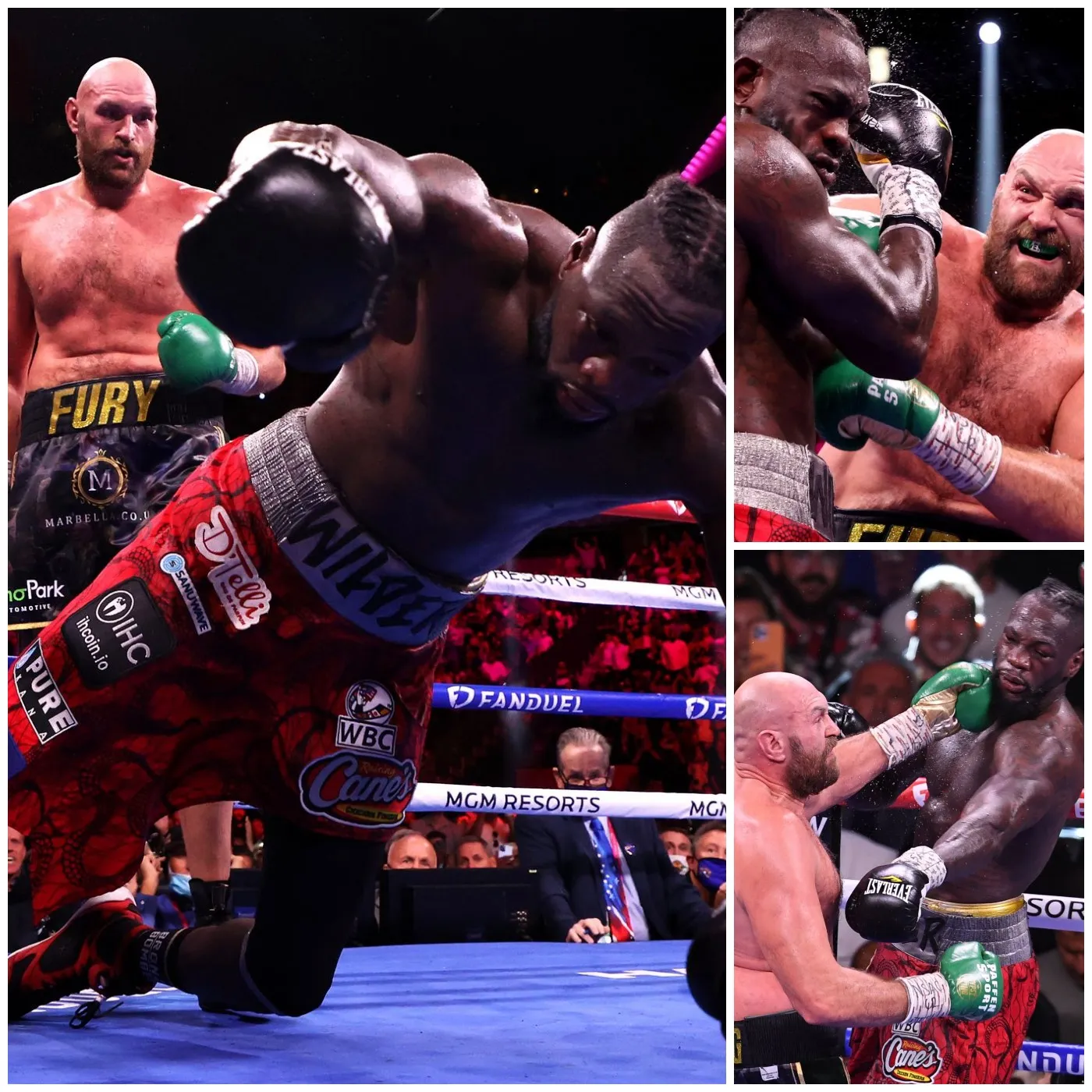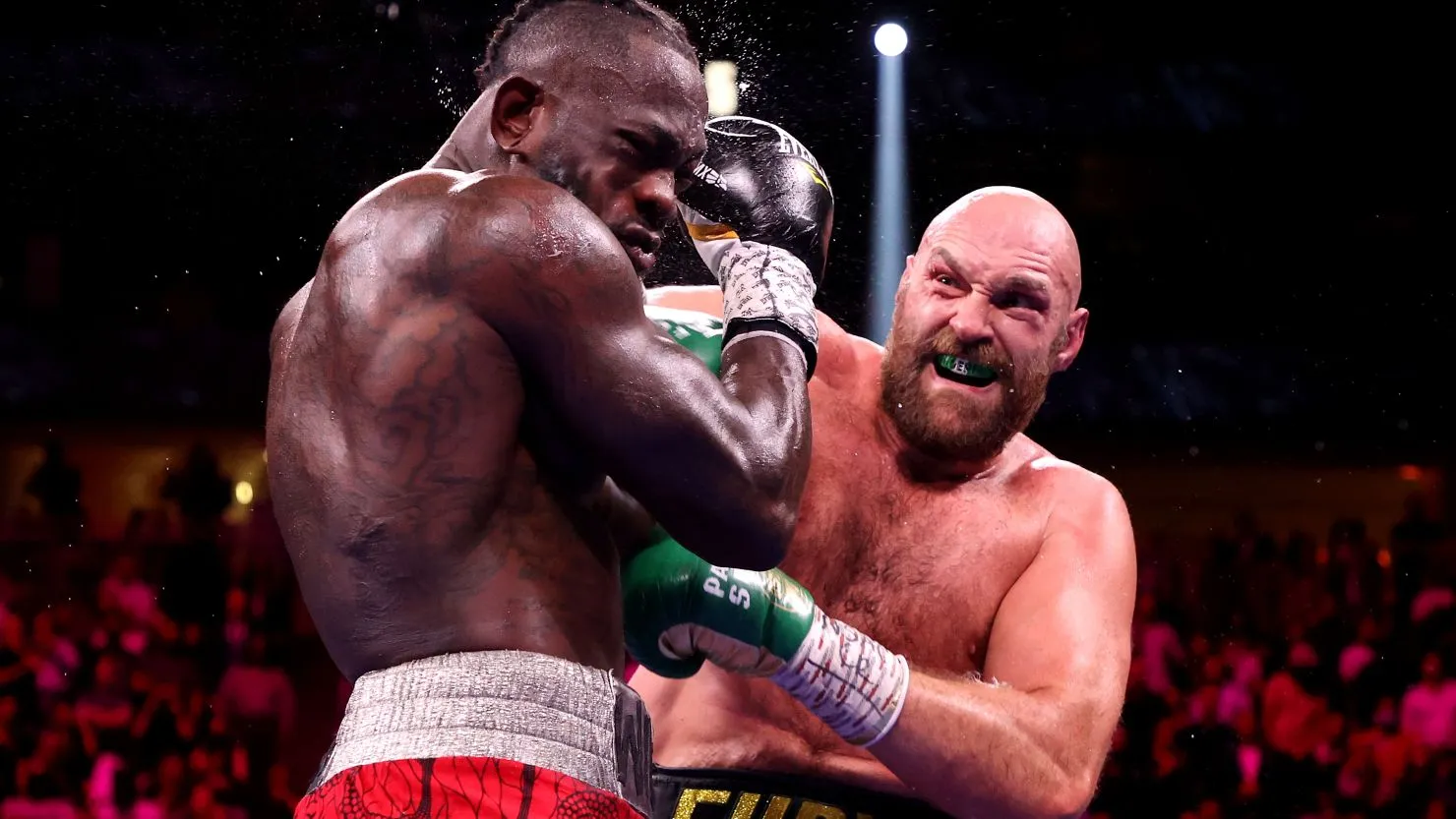Deontay Wilder vs. Tyson Fury – Was the Rivalry Rigged or Real?

The trilogy between Deontay Wilder and Tyson Fury has captivated the boxing world like few rivalries in recent history. From their explosive first bout in 2018 to their controversial rematch and culminating third fight, every match between the two heavyweight titans delivered drama both inside and outside the ring. But as fans and analysts replay every punch and scrutinize every interview, a question looms: Was this rivalry genuine, or was it carefully crafted to sell tickets and boost pay-per-view numbers?
Let’s explore the highs and lows of the Wilder-Fury rivalry, the controversies that defined it, and whether some of the drama may have been more promotional than personal.

The Origins of a Heated Rivalry
Deontay Wilder and Tyson Fury’s first meeting on December 1, 2018, set the stage for one of the most talked-about rivalries in boxing. Fury, a former unified heavyweight champion making a remarkable comeback after mental health struggles and weight issues, was seen as an underdog. Wilder, on the other hand, entered as the reigning WBC champion with an unbeaten record and a reputation as one of the hardest hitters in boxing history.
The fight ended in a controversial split draw, with Wilder scoring two knockdowns, including a dramatic 12th-round punch that Fury miraculously recovered from. The outcome left fans divided and clamoring for a rematch.
Controversy in the Rematch
Their second fight on February 22, 2020, was even more contentious. Fury dominated Wilder, winning via a seventh-round stoppage to claim the WBC title. However, it wasn’t the fight itself but the aftermath that grabbed headlines.
Wilder’s Allegations Against Fury
Following the loss, Wilder made a series of shocking allegations:
- Fury had tampered with his gloves, loading them with “egg-shaped” objects to increase damage.
- Wilder’s water had been spiked, possibly by someone in his own team.
- The referee had been biased and allowed Fury to fight dirty.
- His elaborate, 40-pound pre-fight costume had weakened his legs before he even stepped into the ring.
These claims polarized the boxing community. Supporters of Wilder pointed to photos and videos they believed supported the allegations, while critics dismissed them as excuses for a decisive loss.
Fury’s Response
Fury vehemently denied all accusations, calling Wilder a sore loser and vowing to silence him in a trilogy fight. The war of words escalated, with both fighters exchanging insults on social media and in interviews.
The Final Showdown
On October 9, 2021, Wilder and Fury met for athe thirdtime in one of the most thrilling heavyweight bouts in recent memory. Fury knocked Wilder out in the 11th round to solidify his dominance, but not before Wilder showed incredible resilience by scoring two knockdowns of his own.
Despite the action-packed nature of the fight, the pre-fight buildup was dominated by questions about whether the rivalry had become more of a soap opera than a genuine contest.

Rigged or Rreal? he Arguments
Why the Rivalry Feels Genuine
- Personalities That Clash: Wilder’s confidence and Fury’s brashness make for a natural rivalry. Their contrasting styles, both in and out of the ring, create an authentic tension that resonates with fans.
- No Shortage of Action: Each of their fights delivered memorable moments, from Fury’s miraculous recovery in the first fight to Wilder’s knockdowns in the third.
- High Stakes: Both fighters put their legacies on the line, with belts, unbeaten records, and reputations hanging in the balance.
Why Some Think It’s Manufactured
- Too Much Drama: The post-fight allegations, the endless trash talk, and the exaggerated narratives sometimes felt more like a reality show than a legitimate rivalry.
- Pay-Per-View Sales: The trilogy generated millions of dollars, leading skeptics to wonder if some of the controversies were deliberately amplified to drive ticket and PPV sales.
- No Clear Closure: Even after three fights, the rivalry has left some fans with unresolved questions, fueling speculation that more drama could be used to justify another rematch in the future.
The Role of Promotion in Modern Boxing
Boxing is as much about entertainment as it is about sport, and rivalries like Wilder vs. Fury highlight the fine line between promotion and authenticity. Fighters are often encouraged to play up their emotions and create narratives that draw in casual fans.
The Benefits of Drama
- Increased Interest: A good rivalry sells tickets, generates headlines, and brings in viewers who might not otherwise watch.
- Memorable Moments: Theatrics and trash talk make fights more than just athletic competitions—they become cultural events.
The Risks of Overdoing It
- Credibility Issues: When the drama overshadows the fights themselves, it can harm the sport’s integrity.
- Fan Fatigue: Too much manufactured tension can make rivalries feel artificial, alienating hardcore fans.
Legacy Implications for Wilder and Fury
Both fighters have cemented their places in boxing history, but their rivalry adds a layer of complexity to their legacies.
- Wilder: Known for his knockout power, Wilder’s post-fight allegations and perceived excuses have left some questioning his sportsmanship. However, his resilience and willingness to fight Fury three times showcase his warrior spirit.
- Fury: Undefeated and dominant, Fury has emerged as one of the greatest heavyweights of his era. His ability to rise above the drama and deliver in the ring has solidified his status as a true champion.
A Rivalry for the Ages?
The Wilder vs. Fury trilogy will be remembered as one of the most compelling sagas in heavyweight boxing, but its legacy is not without controversy.
While the fights themselves were thrilling and showcased the best of both fighters, the surrounding drama has left fans wondering how much of the rivalry was real and how much was staged for publicity.
So, was Wilder vs. Fury a genuine clash of titans, or was it a carefully constructed narrative designed to captivate audiences? The answer likely lies somewhere in between, but one thing is certain: the boxing world won’t soon forget the Bronze Bomber and the Gypsy King.





